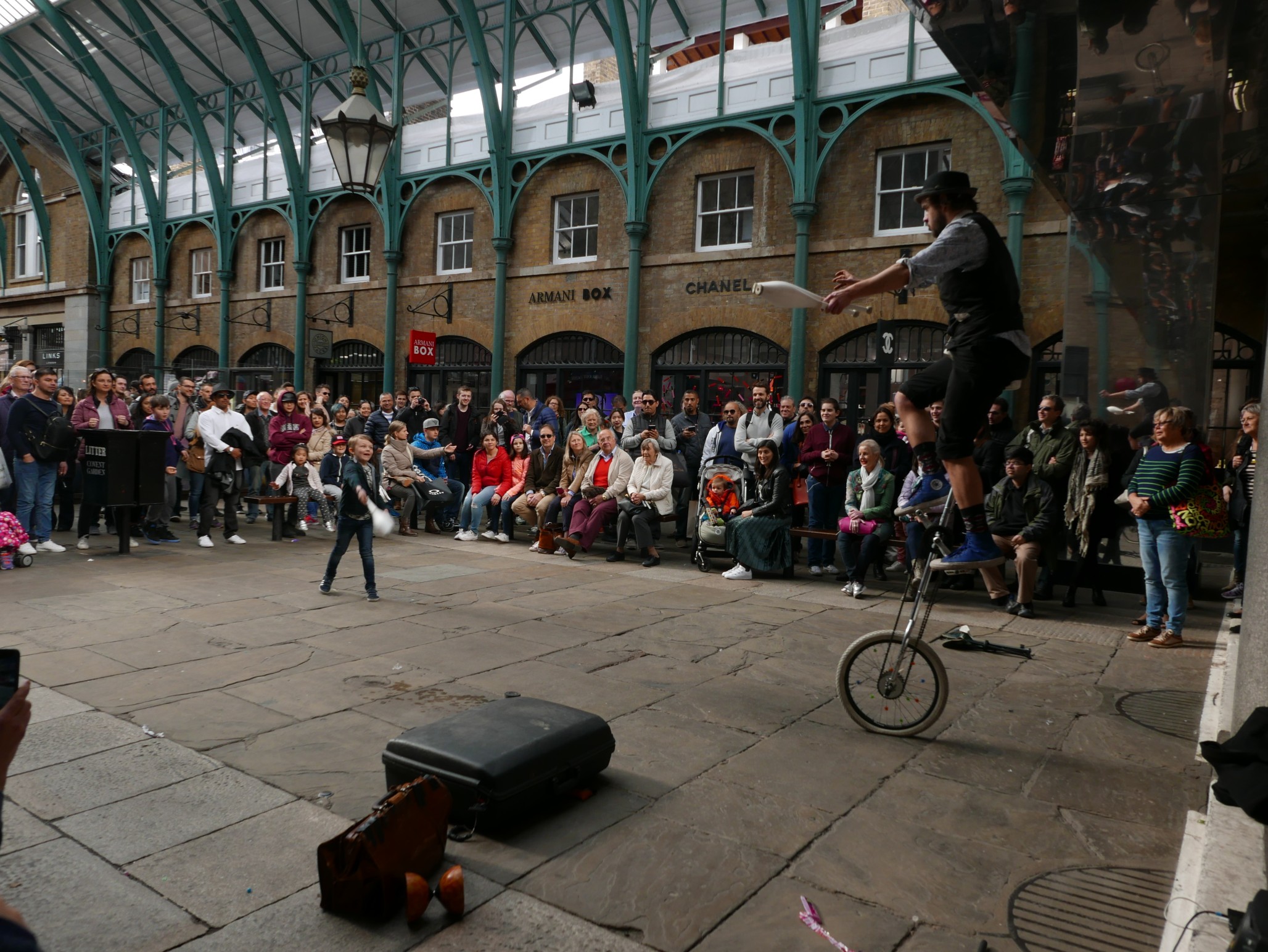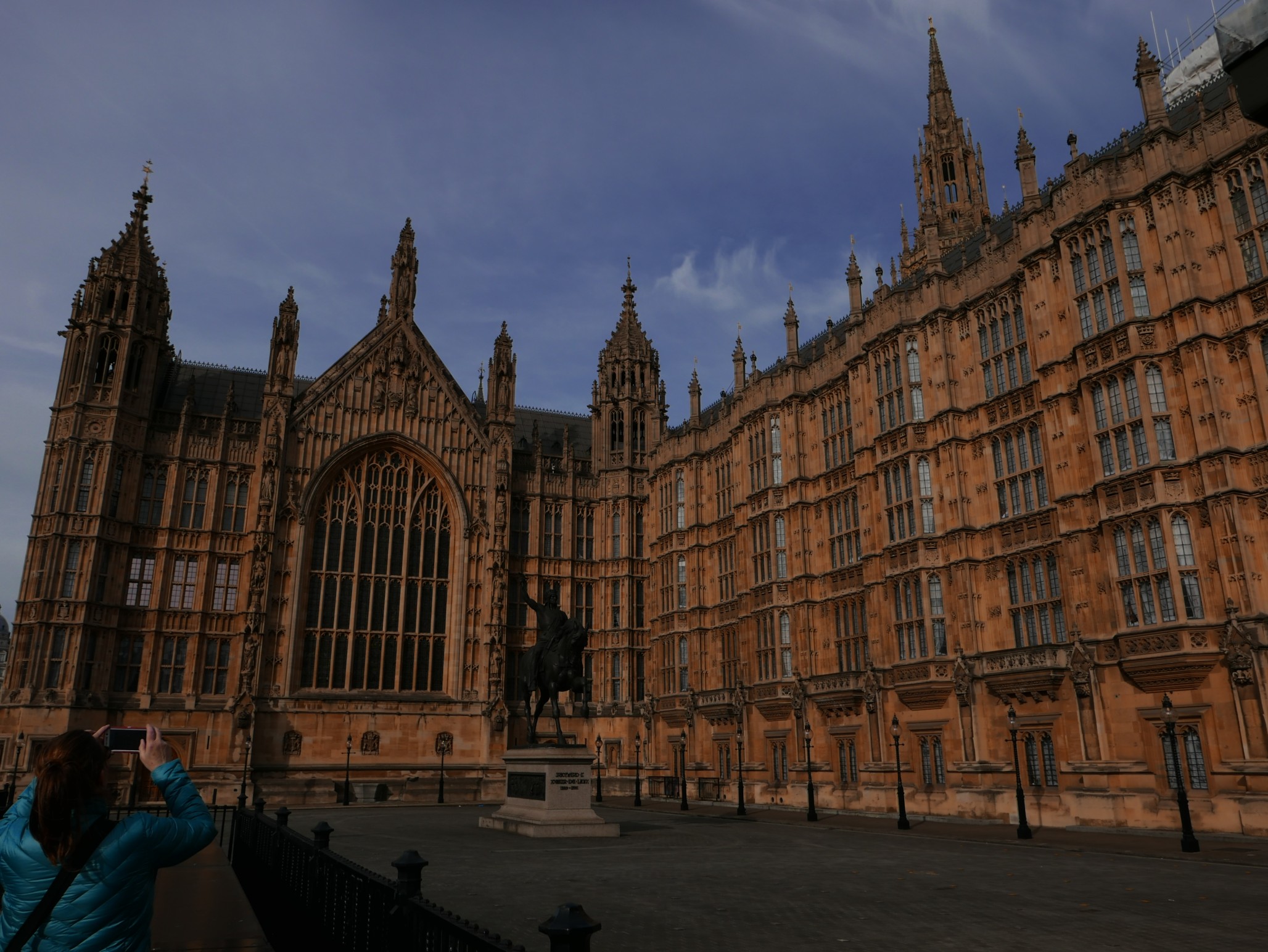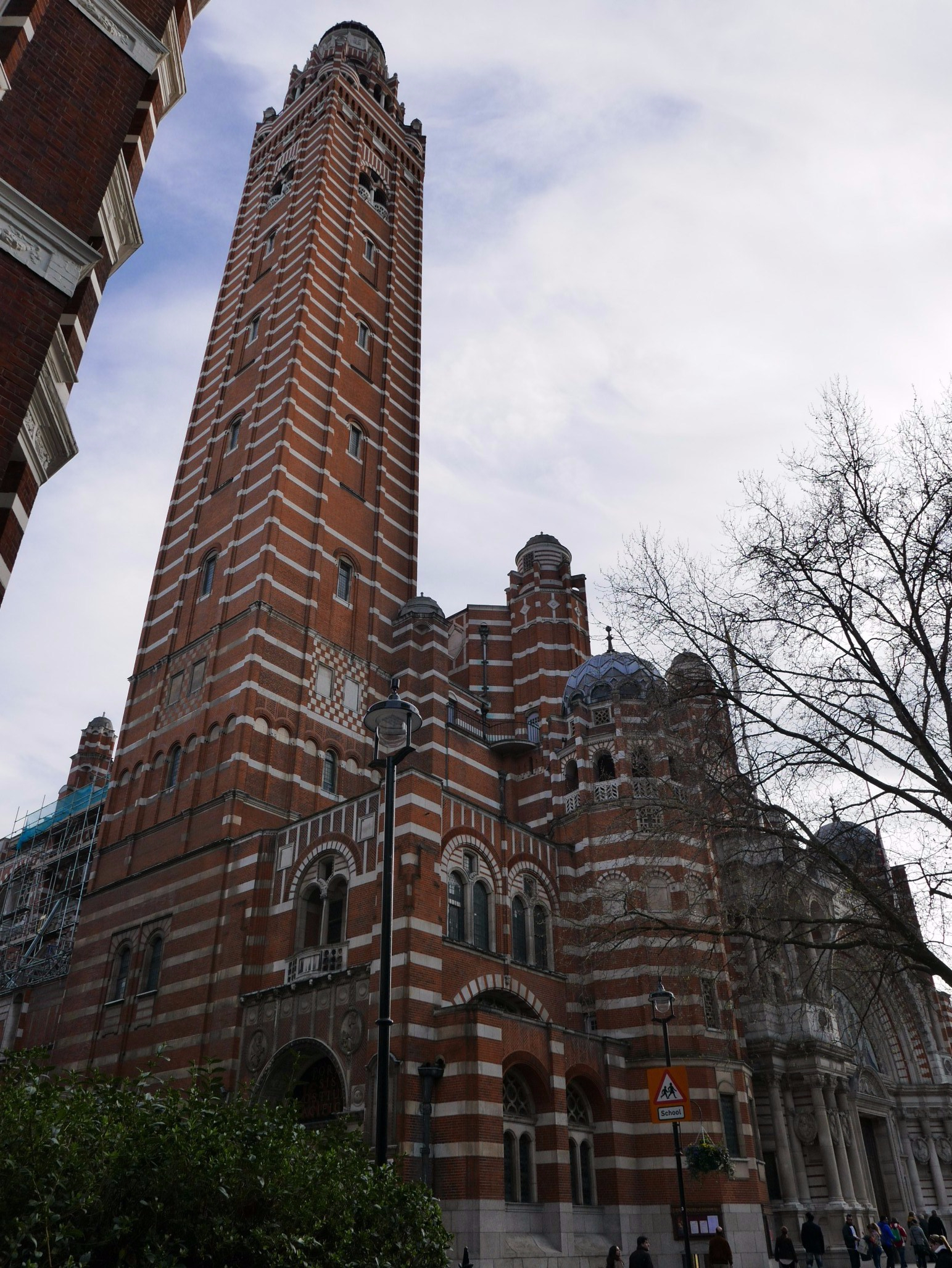I had a friend – a saintly friend who died seven years ago next week – who, as I said, was saintly and much holier than I.
I have written about her before, mostly about the time I visited her a couple of months before she died of the cancer she had been fighting for years, and that was finally winning. She talked about how she felt about what was coming, and one of the things she talked about was Purgatory.
I can’t wait to go to Purgatory, she said. To have everything but love burned away. Nothing but love left.
Anyway, this is not about that.
One of the things Mollie used to mention was how watching people receive Communion was a spiritual act for her. To watch women, men and children each receive the Lord and walk away, Christ dwelling within, was something profound.
I get it. But at the same time, I want to say:
Stop staring at me.
For me, that moment of Communion is, indeed strong. Taking in the congregation as a whole, all of us, present in the moment of sacrificial Love, bound in and by Him, I know I’m living in what is most really Real and it’s a glimpse of Heaven. But still. Come on.
Stop staring!
The demise of the hand missal is what did it, and it was no accident. Many of you weren’t there, but in those post-Vatican II years of “renewal,” the anti-private prayer at Mass game was strong. THIS IS NOT PRIVATE PRAYER, they said. THIS IS LITURGY, WHICH MEANS WORK OF THE PEOPLE. YOUR PRIVATE PRAYER TIME COMES LATER.
Stop praying privately!
How that was supposed to work, I never really understood. I mean, even if I’m praying with others, I’m still here and I’m still praying out of my own self, which is not obliterated in the Community Borg..but anyway.
To this end, congregations were told to pay attention. They were encouraged to be social before and after Mass in the sanctuaries. Missalettes were removed from pews so you could not follow along with the readings privately. The Proclamation of the Word was originally and primally an oral activity, and so two thousand years later, You Must Just Listen as a Community and May Not Follow Along with Your Own Set of Private Eyes, despite the useful invention of moveable type and widespread literacy. Hand missals, full, not only of the prayers of the Mass, but prayers for Mass and other occasions, once ubiquitous, stuffed with holy cards that marked the owner’s journey from First Communion through marriage and parenthood, through prayers for lost keys and lost jobs and lost children, through sickness, through the inevitability of suffering, decline and death…pray for us!
Gone.
Mass is not the time for private prayer.
Post-Communion time was the prime battlefront. Kneeling was discouraged in some locations, with Standing as a Community, at the Ready to Welcome the Lord became the normal posture. Standing, yes, and singing. This is what expresses our identity as the Body of Christ. This moment is for visibly witnessing to this community and is not….NOT for private prayer.
STOP PRAYING.
And so we did. Yup. But most of us don’t sing, we don’t have anything to help us pray, so we stare instead.
Good job!
I’m sure more than a few of us come to that moment with Mollie’s spiritual vision and indeed, witnessing our brothers and sisters encounter the Lord is part of our own post-Communion prayer.
But I think most of us would welcome a little help, too.
Magnificat certainly fills a gap here. But why not revive that hand missal? They do still exist, you know. Or include a variety of private (yes, I said it) pre- and post-Communion prayers in missalettes?
There are, of course, quite a few small, hand-held Catholic prayer books out there that include these types of prayers. There are some good ones (recommend your favorites), but they tend to have a dated, crowded aspect about them – I think the market is there for a prayer book of this type that does not feel like it was printed from plates last used in 1950 and found in the church basement. Not – let me repeat NOT with “contemporary” prayers penned by a committee, either.
Further, even if the current selection out there were to remain static, it seems to me that parishes would be doing a real service -an act of mercy, shall we say – by encouraging their use and making them available at low cost.
It is not a matter of going all fascist in the opposite direction now. It is about recognizing that people, in those moments after Communion, are seeking to deepen that encounter with the Lord. Many would welcome the use of prayers to do so, and it is the parish’s job to provide them with the opportunity and the means. Buy a bunch and sell them! Why not?
Let me interject another point here. I said that it’s not about being authoritarian in the “private prayer” direction either. What I mean by this plays off of one of my observations about this post-V2 era: how the liturgical changes, intended to bring the congregation more into the action of the Mass, did so by taking away the congregation’s freedom.
In the pre-Vatican II liturgy, all the burden was on the priest and the other ministers. It was their visible actions that defined the Mass and they were to be performed in specific ways, under pain of sin.
If you think about it, what the congregation did was almost irrelevant, as long as they didn’t touch the Host and were present from one specific point to another.
Which, of course, in the eyes of liturgical reformers was part of the problem: the promotion of a minimalist, spectator role for the congregation.
Swing, pendulum!
….to the point at which the priest can do whatever the heck he wants, but the congregation’s incorrect actions are given the side-eye and finger-shake.
Members of the congregation are told that they must stand, sit and kneel as a group at these points, and they must sing and pray aloud…with gusto! (has anyone ever been in a congregation in which the celebrant orders the congregation to do a Do Over of a response with more vigor? I have) and they will not receive Communion if they dare to kneel and the children must march out for their own Liturgy of the Word, you must stand and march to Communion when the usher directs you to and you should not privately pray because…this is the liturgy, not your private prayer time
Now, in my limited experience, this is a Middle-Class Caucasian American Catholic problem.
When I have gone to Mass in Europe, when I have gone to Hispanic Masses in the US, when I have attended Easter Catholic liturgies…I don’t feel this. People come and go. Their postures are all over the place most of the time. A good portion of the congregation might be doing the same thing at any given time, but those that are doing something different…are fine.
And then Communion?
Scrum.
Which I like. It takes the pressure off.
So where was I in this blog post I was going to dash off in twenty minutes?
The post-Vatican II emphasis on the Participation of the People in the Mass has come, in many places, to somehow mean The Controlled Movement of the People in the Mass. As we sit in churches barren of décor, with nothing to read to help us focus and pray, we watch others walk up in the line when the usher greeter welcoming committee member tells them to, we watch the priest clean the vessels, and we wait for it all to be over.
But at least we’re all doing the same thing in community by God.
Prayer happens. It does. But I do think it’s time to get over that reflexive fear of Private Prayer! During Mass! and consider the possibility that some people’s experience of the reality of our Communion with the Lord and with each other, so profound at the moment, might be helped along by the provision of books with appropriate pre- and post-Communion prayers, and the encouragement to use them.
My true, real and deep pet peeve related to this involves school Masses. Catholic schools are about formation. About helping children draw closer to the Lord by giving them every resource we possibly can to help them focus on Him in this stage of life in which they are open and seeking, and in a culture that encourages them to focus on themselves instead of anything solid and real outside of themselves.
Magnifikid is good, but is a disposable and for Sunday Mass.
I would love to see a publisher produce an inexpensive, attractive, but not twee or childish Mass book especially for groups of CatmAGholic children. It would include the main parts of the Mass in English and Latin, the rite for Benediction, and a few pre and post Communion prayers. That’s it. Nothing more fancy than that. Sell it in bulk, teach schools how to teach their kids to use them, and boom. More choices, more active participation than just sitting and watching the first grade trail up the aisle, hands folded over chests for their blessing while not singing “Our God is Here.” Yes, there are children’s missals, but I am thinking about something that falls between that kind of vinyl-bound actual book and a flimsy pamphlet and that is not as picture heavy as a typical “Mass for Children” book. Something that a school or parish can publish in bulk and pull out for Masses and encourage children to use. Perhaps it exists? If so..tell me!
Note that this is not a screed against “how people act in Mass,” even though it may sound like it. Some bloggers do that. I don’t. I stand (or kneel or sit..whatever) in awe of every congregation of which I am a part and indeed, contemplating the diversity of people there and praying for their needs, whatever they might bed, forms a bedrock of my own experience at Mass.
But still, it bothers me to see all of us – us – just..staring at the Communion line as it creeps up that aisle.
Because it is a struggle to focus, isn’t it? You are curious to see who’s there. You’re starting to think about what you have to do and where you have to go later. Your kids are poking at each other. You know you should be praying, and indeed you want to, for Jesus is here, right now, but you are not a Spiritual Master, it’s hard to concentrate, it’s hard to know what you want to say, what you could say, what you should say, and it’s really hard to know, simply, how to listen, since you know that’s what you should be doing right now, above anything else.
Different people are helped in this moment by different things: contemplating the congregation, the priest’s actions, the crucifix, the art in the church, listening to the music, singing the music, smelling the remaining scent of incense, fingering beads, closing one’s eyes and listening, opening one’s eyes and seeing.
And one of those things that can help are words printed on a page in a small book you’ve slipped in your purse or pocket, words that reflect what others – hundreds, thousands and millions – have found in this moment, in this Presence. It is good to have that book, to open it up right now in this place, present with your own quiet, noisy, still, moving, wandering crowd – to open it up in this Presence, see those words, and join them.
Soul of Christ, sanctify me
Body of Christ, save me
Blood of Christ, inebriate me
Water from Christ’s side, wash me
Passion of Christ, strengthen me
O good Jesus, hear me
Within Thy wounds hide me
Suffer me not to be separated from Thee
From the malicious enemy defend me
In the hour of my death call me
And bid me come unto Thee
That I may praise Thee with Thy saints
and with Thy angels
Forever and ever

Dorothy Day at Mass. Source.
Read Full Post »




 perspectives, and domestic French politics in the tumultuous decades before the First World War. With case studies on Indochina, Polynesia, and Madagascar, An Empire Divided–the first book to examine the role of religious missionaries in shaping French colonialism–challenges the long-held view that French colonizing and “civilizing” goals were shaped by a distinctly secular republican ideology built on Enlightenment ideals. By exploring the experiences of Catholic missionaries, one of the largest groups of French men and women working abroad, Daughton argues that colonial policies were regularly wrought in the fires of religious discord–discord that indigenous communities exploited in responding to colonial rule.
perspectives, and domestic French politics in the tumultuous decades before the First World War. With case studies on Indochina, Polynesia, and Madagascar, An Empire Divided–the first book to examine the role of religious missionaries in shaping French colonialism–challenges the long-held view that French colonizing and “civilizing” goals were shaped by a distinctly secular republican ideology built on Enlightenment ideals. By exploring the experiences of Catholic missionaries, one of the largest groups of French men and women working abroad, Daughton argues that colonial policies were regularly wrought in the fires of religious discord–discord that indigenous communities exploited in responding to colonial rule. 



 nd attended by a security employee, in which were guided several definitely Middle-Eastern looking folks, including one entire family.
nd attended by a security employee, in which were guided several definitely Middle-Eastern looking folks, including one entire family. definitely took a bit of a scenic route…that’s the advantage of having a maps app on which you are following along as you ride in the back seat. I didn’t argue with him, though…but I think there is no doubt he added about five minutes to the route.
definitely took a bit of a scenic route…that’s the advantage of having a maps app on which you are following along as you ride in the back seat. I didn’t argue with him, though…but I think there is no doubt he added about five minutes to the route.
 We walked a half a block and saw – dozens of folks in Edwardian dress, waiting to board buses – obviously movie or television scenes had been filmed. For some reason, my camera was weird at that moment, and all my shots were very blurry, but you can get a sense here. I did a little research, and I’m guessing what it might have been at work was a new television version of Howard’s End.
We walked a half a block and saw – dozens of folks in Edwardian dress, waiting to board buses – obviously movie or television scenes had been filmed. For some reason, my camera was weird at that moment, and all my shots were very blurry, but you can get a sense here. I did a little research, and I’m guessing what it might have been at work was a new television version of Howard’s End. 
 very long line for an ice cream place. When I returned back to the apartment, I saw that the gimmick was soft-serve ice cream presented on cotton candy clouds. I told the boys and their response: Gross.
very long line for an ice cream place. When I returned back to the apartment, I saw that the gimmick was soft-serve ice cream presented on cotton candy clouds. I told the boys and their response: Gross. 




 confiscated. Because it has a toy in it. It’s not as if the toy is actually embedded in the chocolate. There’s a chocolate shell, then a kind of hard to open plastic egg which holds the toy. Anyone who chokes on it…would probably have choked on other things first before they ever met a Kinder Egg. Anyway, for some people, getting Kinder Eggs is a highlight of travel outside the US…for some people…)…and some other supplies.
confiscated. Because it has a toy in it. It’s not as if the toy is actually embedded in the chocolate. There’s a chocolate shell, then a kind of hard to open plastic egg which holds the toy. Anyone who chokes on it…would probably have choked on other things first before they ever met a Kinder Egg. Anyway, for some people, getting Kinder Eggs is a highlight of travel outside the US…for some people…)…and some other supplies. for the best) and we went out to find food. We settled on a popular chicken chain –
for the best) and we went out to find food. We settled on a popular chicken chain –




























